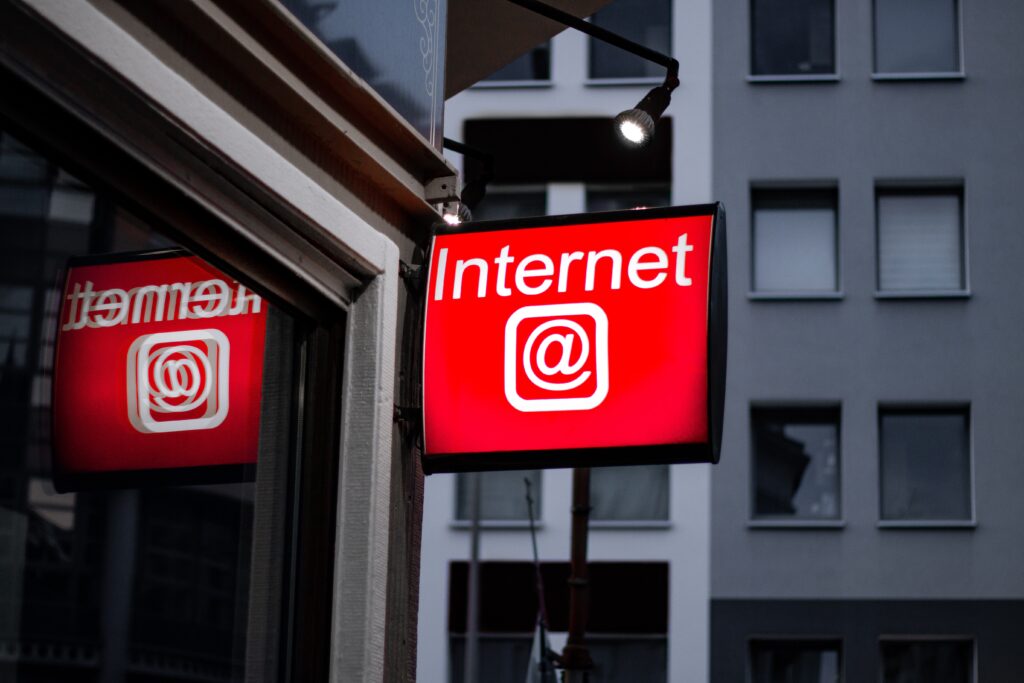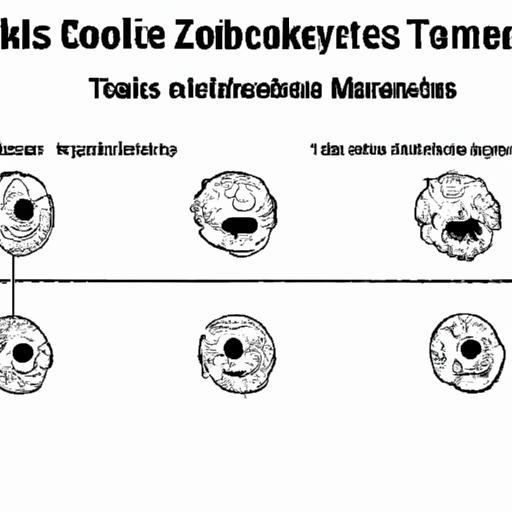
Hey, have you ever heard of Zombie Cookies? They’re a unique type of treat that will definitely catch your attention! These cookies are unlike anything you’ve ever tasted before. With each bite, you’ll experience a delicious blend of flavors that will make your taste buds dance with joy.
Zombie Cookies are filled with a mysterious combination of ingredients that create a delightful balance of sweetness and richness. The chewy texture adds to the overall experience, making it hard to resist having just one. Whether you’re a fan of chocolate, caramel, or even fruity flavors, there’s a Zombie Cookie flavor that’ll satisfy your cravings. Give these cookies a try and prepare to be amazed by their irresistible taste. You won’t be able to resist going back for more!

1. What are Zombie Cookies?
1.1 Definition of Zombie Cookies
Zombie Cookies, also known as Evercookies, are persistent tracking cookies that are nearly impossible to delete from a user’s browser. Unlike regular cookies that are stored on a user’s computer, Zombie Cookies utilize methods like Flash cookies, HTML5 storage, Silverlight local shared objects, and other storage mechanisms to recreate themselves even after being deleted. These cookies are designed to track and monitor a user’s browsing activities across different websites, enabling advertisers and other third parties to collect and analyze user data for targeted advertising and profiling purposes.
1.2 How Zombie Cookies Work
Zombie Cookies operate by leveraging the various storage mechanisms available in modern web browsers to store unique identifiers on a user’s device. These identifiers can include information such as browsing history, website preferences, and other behavioral data. When a user visits a website that utilizes Zombie Cookies, these identifiers are retrieved and recreated on the user’s device, even if the original cookies have been deleted.
The process is typically initiated by JavaScript code embedded within a webpage, which checks for the presence of various storage mechanisms (such as Flash cookies) and recreates the Zombie Cookies if they are missing. This persistent regeneration of cookies makes it extremely challenging for users to completely eliminate their presence, resulting in heightened tracking capabilities and a potential invasion of privacy.
2. The Dangers of Zombie Cookies
2.1 Invasion of Privacy
One of the major concerns surrounding Zombie Cookies is the invasion of privacy. These persistent tracking cookies collect vast amounts of personal information, including browsing habits, search history, and online interactions. This data is then used to create detailed user profiles, which can be exploited by advertisers and other third parties for targeted advertising, behavioral analysis, and even data resale. Such an invasion of privacy can leave users feeling violated, as their online activities are being monitored without their explicit consent.
2.2 Tracking and Profiling Users
Zombie Cookies enable advertisers and other tracking entities to monitor and analyze users’ interactions across multiple websites. This tracking ability allows them to understand individual preferences, behavior patterns, and interests, effectively creating a comprehensive profile of each user. With this wealth of data, targeted advertising becomes increasingly accurate, as advertisers can tailor their campaigns to specific user segments based on their online activities. While advertising is an integral part of the internet economy, the extent of tracking and profiling facilitated by Zombie Cookies raises concerns about the erosion of individual privacy rights.
2.3 Difficulty in Opting Out
Unlike regular cookies, Zombie Cookies are notoriously challenging to eliminate from a user’s browser. Even if users manually delete their cookies or utilize browser settings to block cookies, Zombie Cookies can still be recreated through alternative storage mechanisms. This makes it incredibly difficult for users to opt-out of being tracked and profiled by these persistent cookies, causing frustration and a lack of control over personal data. The issue is further compounded by the fact that many users are unaware of the presence and capabilities of Zombie Cookies, making it difficult to take effective action to protect their privacy.

3. How to Identify Zombie Cookies
3.1 Checking Cookie Settings
One way to identify the potential presence of Zombie Cookies is by reviewing your browser’s cookie settings. Most web browsers offer options for managing cookies, including the ability to view existing cookies and block specific cookies or all cookies altogether. By examining the types of cookies present and their sources, you can gain insights into whether Zombie Cookies are being used to track your online activities.
3.2 Analyzing Web Traffic
Analyzing your web traffic can provide useful information when it comes to identifying the use of Zombie Cookies. If you notice that you receive targeted advertisements or experience personalized website content across various websites, it may indicate the presence of tracking mechanisms like Zombie Cookies. Additionally, if you consistently see ads relating to topics you have recently searched for or shown interest in, it is another potential indicator of the use of persistent tracking cookies.
3.3 Using Cookie Management Tools
There are various cookie management tools available that can help identify and manage Zombie Cookies. These tools often provide comprehensive reports on the types of cookies present on a user’s device, including any persistent tracking cookies. By using such tools, you can gain valuable insights into the tracking methods being used and take appropriate action to protect your privacy. However, it is important to note that these tools may have limitations, as Zombie Cookies are designed to evade detection and removal.
4. Protecting Against Zombie Cookies
4.1 Clearing and Blocking Cookies Regularly
Although Zombie Cookies can be persistent, regularly clearing and blocking cookies can still help mitigate their impact. By deleting cookies from your browser and blocking them from specific websites or third-party tracking entities, you can minimize the chances of Zombie Cookies being recreated. Additionally, enabling the “Do Not Track” option in your browser settings can also help reduce the effectiveness of these tracking mechanisms.
4.2 Using Privacy Extensions and Tools
There are several browser extensions and privacy tools available that can enhance your privacy protection against Zombie Cookies. These tools can help block or limit the functionality of persistent tracking cookies, making it more challenging for advertisers and other tracking entities to monitor your online activities. It is advisable to research and choose reputable privacy tools that align with your specific needs and browser preferences.
4.3 Opting Out of Online Tracking
Many advertising networks and data brokers offer opt-out mechanisms that allow users to request to be excluded from targeted advertising and tracking. It is recommended to visit the websites of these networks and data brokers to explore the opt-out options available. While opting out may not entirely eliminate the use of Zombie Cookies, it can help reduce the level of tracking and profiling performed on your online activities.
4.4 Regularly Updating Web Browsers
Keeping your web browser up to date is crucial in protecting against Zombie Cookies. Browser updates often include security enhancements and patches that address vulnerabilities exploited by tracking mechanisms. By regularly updating your browser, you can ensure that you have the latest defenses against persistent tracking cookies and other privacy threats.

5. Legal and Ethical Concerns
5.1 Privacy Laws and Regulations
The use of Zombie Cookies raises significant legal and ethical concerns regarding privacy. In many jurisdictions, there are legal frameworks in place to protect user privacy, such as the General Data Protection Regulation (GDPR) in the European Union. These laws impose obligations on organizations regarding the collection, use, and disclosure of personal data. However, the evolving nature of tracking technologies like Zombie Cookies and the global nature of the internet present challenges for regulators in effectively addressing these privacy concerns.
5.2 Ethical Considerations
From an ethical standpoint, the deployment of Zombie Cookies without user consent or knowledge raises questions about transparency and control over personal data. Advertisers and tracking entities must balance their desire for targeted advertising with the need to respect user privacy. It is important to consider the ethical implications of employing technologies that persistently track and profile individuals without their explicit consent, as this can erode trust and damage the user experience on the internet.
6. Real-Life Case Studies
6.1 Evercookie
Evercookie is a notable example of a Zombie Cookie implementation. Developed by internet privacy researcher Samy Kamkar, Evercookie utilizes multiple storage mechanisms to recreate cookies even after being deleted. By combining the power of Flash cookies, HTTP cookies, localStorage, and other techniques, Evercookie creates a cookie that is highly resilient to removal. The Evercookie project was launched to shed light on the dangers of persistent tracking cookies and promote awareness on effective privacy protection measures.
6.2 Samy Worm
The Samy Worm is another real-life case that exemplifies the potential consequences of tracking mechanisms like Zombie Cookies. Developed by Samy Kamkar, the worm exploited a cross-site scripting vulnerability on MySpace in 2005. It allowed Kamkar to add script code to MySpace profiles, which, when viewed by other users, would make them automatically “friend” Kamkar and spread the worm to their profile. This incident highlights the importance of protecting against tracking and the potential risks associated with the misuse of personal data.

7. Future of Zombie Cookies
7.1 Efficacy of Countermeasures
The effectiveness of countermeasures against Zombie Cookies will continue to be a subject of debate and innovation. As privacy concerns grow, there will likely be increased efforts from browser developers, privacy advocates, and regulatory bodies to find more robust solutions. It remains to be seen whether new technologies, stricter regulations, or international cooperation will effectively address the challenges posed by Zombie Cookies.
7.2 Technological Advancements
The future of Zombie Cookies will be intertwined with advancements in web technologies. As browsers evolve, new mechanisms for tracking and profiling may emerge, challenging the effectiveness of current countermeasures. Technologies like machine learning and artificial intelligence may also play a role in refining tracking methods and making it even more difficult to detect and protect against Zombie Cookies. Continued research and proactive measures will be crucial in staying ahead of the evolving landscape of online tracking.
8. Zombie Cookies vs Regular Cookies
8.1 Definition and Function
Zombie Cookies differ from regular cookies in several ways. While regular cookies are typically stored on a user’s computer and can be easily managed or deleted, Zombie Cookies utilize various storage techniques to recreate themselves after deletion. Regular cookies serve various functions, such as storing website preferences or authentication data, while Zombie Cookies primarily focus on tracking and profiling users’ online activities.
8.2 Tracking Capabilities
Regular cookies have limited tracking capabilities compared to Zombie Cookies. Regular cookies are typically associated with a specific domain and may have restrictions on their accessibility. In contrast, Zombie Cookies can track users across multiple websites and platforms. This enhanced tracking ability allows Zombie Cookies to gather comprehensive data on an individual’s online behavior, providing advertisers and other tracking entities with more detailed information for targeted advertising purposes.
8.3 Privacy Implications
The use of Zombie Cookies presents greater privacy implications compared to regular cookies. Regular cookies, when managed properly, can offer convenience and personalization benefits without compromising privacy. However, Zombie Cookies can persistently track users’ activities without their knowledge or consent, potentially violating privacy rights. The extensive profiling enabled by Zombie Cookies raises concerns about user autonomy, data protection, and the potential for misuse of personal information.

9. The Role of Advertising Networks
9.1 Data Collection and Sharing
Advertising networks play a significant role in the ecosystem of Zombie Cookies. These networks facilitate the collection of user data through various tracking mechanisms, including Zombie Cookies. The data collected by advertising networks is often shared with third parties such as advertisers and data brokers, enabling the creation of detailed user profiles. The extensive reach and capabilities of advertising networks contribute to the pervasiveness of Zombie Cookies and the challenges in protecting user privacy.
9.2 Targeted Advertising
One of the primary objectives of Zombie Cookies and advertising networks is to enable targeted advertising. Targeted advertising involves tailoring advertisements to individual users based on their interests, demographics, and online behavior. By leveraging the data collected through Zombie Cookies, advertising networks can deliver more relevant and personalized ads, potentially increasing user engagement and advertising effectiveness. While targeted advertising offers benefits for advertisers, users must balance the benefits with concerns about privacy and data protection.
10. Conclusion
Zombie Cookies present significant challenges to privacy and user control over personal data. Their persistent nature and ability to recreate themselves make it difficult for users to effectively opt-out of being tracked and profiled. However, there are steps that users can take to protect themselves against the intrusion of Zombie Cookies, such as regularly clearing and blocking cookies, using privacy extensions and tools, opting out of online tracking, and keeping web browsers up to date. The legal and ethical concerns surrounding Zombie Cookies highlight the need for comprehensive privacy regulations and responsible data practices. As technology and tracking methods continue to evolve, staying informed and proactive about privacy protection will be crucial in preserving individual privacy rights in the digital age.
